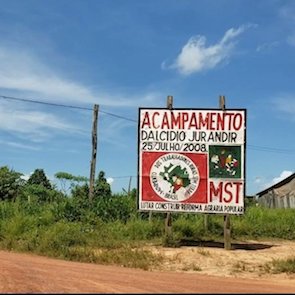Bill restricting access to land and threatening environmental protection approved without civil consultation in Pará
On 11 June 2019, the Legislative Assembly of the state of Pará (ALEPA) approved state bill 129/2019 (Projeto de lei estadual 129 de 2019) after two consecutive votings. The bill restricts access to land by social movements while favouring land grabbing and endangering enviromental protection. The legislative process has been marked by irregularities, including a lack of civil consultation. The approval of bill 129/2019 is emblematic of a pattern of aggression against land rights defenders and rural workers, which is often condoned or conducted by state authorities. The bill is currently pending sanctioning or rejection by state governor Helder Barbalho.
State bill 129/2019 directly targets land occupations in rural areas established by land rights defenders on public lands, despite the existence of legal and constitutional provisions safeguarding their rights, such as the constitutional principle of the social function of property (that all property must have a social function and if it is unused, it may be redistributed) and the Agrarian Reform law. It does so by allowing the sale of public lands to private parties without bidding processes or impact studies. Additionally, state bill 129/2019 allows for the legalisation of the ownership of territories which were previously illegitmately grabbed.
The approval process and the content of the bill have failed to comply with a number of dispositions of the Federal Constitution and the Pará Constitution. Most notably, the legislative process did not include any public hearings with civil society members to discuss social and environmental impacts, as required of any bill related to property and social-environmental justice.
Furthermore, the approval process at the Legislative Assembly did not respect the organ’s own internal regulations, which determine that bills are required to go through two discussions and voting periods, on separate days, even on urgent matters. As a result, on 26 June 2019, the Federal Prosecutor’s Office on Citizen’s Rights (Procuradoria Federal dos Direitos do Cidadão, PFDC) issued a Technical Note to Pará state governor Helder Barbalho, asking that the bill be re-evaluated by the Legislative Assembly before it is sanctioned.
It is not a coincidence that this bill was approved in the state of Pará, known as the most violent state for land rights defenders in Brazil. Authorities are often responsible for laws and policies that violently dismantle social movements that push for agrarian reform, land rights, environmental rights and access to food. According to the Federal Prosecutor’s Technical Note, this bill presents the “possibility of great and irreversible damage to the property structure in Pará”, and the way it has been approved by ALEPA would potentially severly increase the state’s already alarming rural violence levels.
Over the past weeks, Front Line Defenders has condemned and drawn attention to the series of evictions planned from June to September 2019 in the state of Pará, which will increase the vulnerability of local leaders, social movements, human rights defenders and organizations that support land redistribution processes. Front Line Defenders believes that those evictions, associated with a state bill that favours land grabbers and members of the elite members, aim at the dismantling of land rights movements and the imposition of restrictions to the work of human rights defenders.
Front Line Defenders is extremely concerned by the approval of state bill 129/2019 without broad civil consultation, and urges state level authorities to take all necessary actions to provide ample consultation and dialogue with civil society members before its sanctioning. Front Line Defenders is further concerned that land redistribution in Pará is taking place to the detriment of human rights defenders and movements who have historically fought for the right to access to land, despite due process guarantees and social justice principles.

